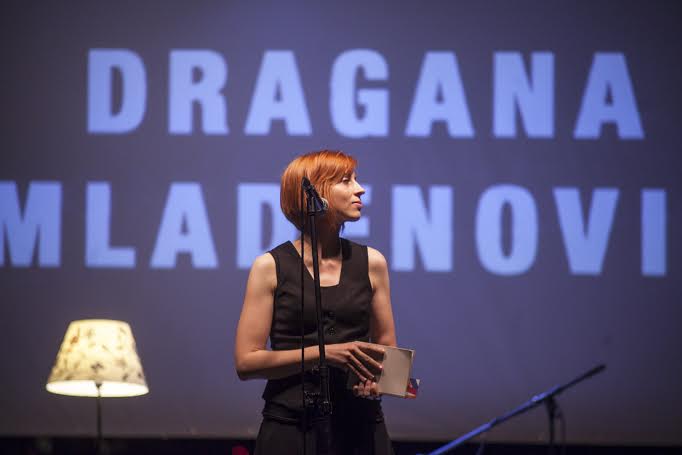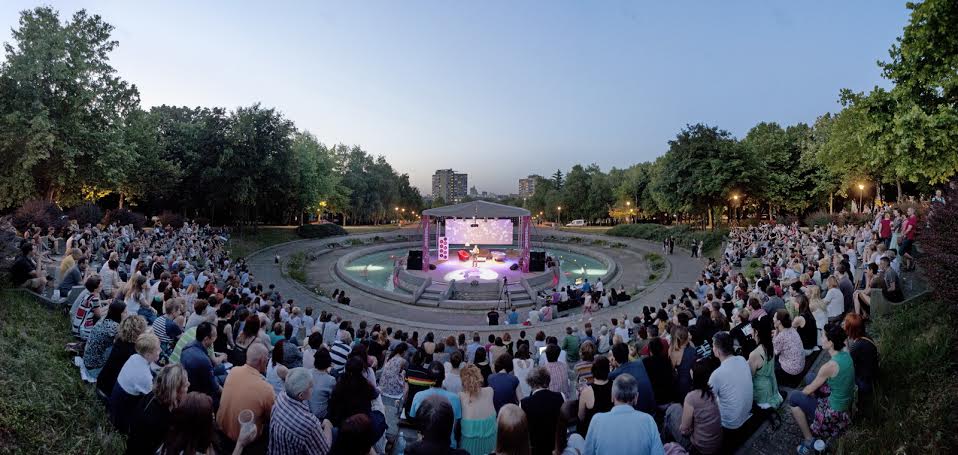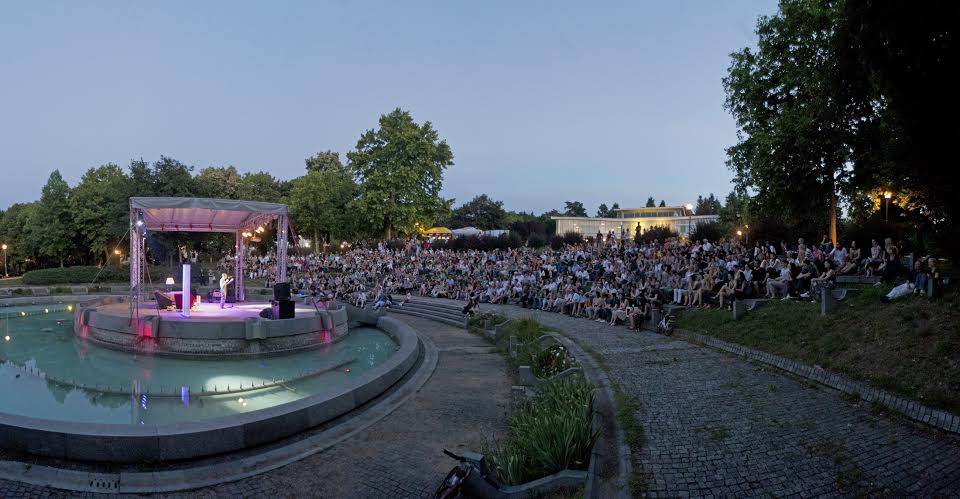When organizing an open-air festival, it is easy to realize how religions first came into being: man gazed into the sky and yearned for weather to save the harvest. For seven years now, we—the organization team of the Krokodil festival—have been just-as-obsessively peering at the sky and weather forecasts, always clutching to the one that predicts the worst possible weather. Finally, on the opening day, we phone the Hydrometeorology Institute every two hours. We’re on a first-name basis with its employees.
The festival takes place in the open-air amphitheater in front of the Museum of Yugoslav History, which makes for great atmosphere and an exceptionally high turnout. Krokodil (an acronym loosely translatable as “regional literary gathering which does away with boredom and lethargy”) is conceived as a reading festival and a festival of contemporary literature. More than 120 authors, from over fifteen European countries, have participated thus far.
This year’s theme was “Centers of Periphery.” We aimed to examine the relation between the “center” and the “margin” in literature, as well as in society and politics, exploring the geographical aspects of banishment from the mainstream.
Miguel Rodriguez Andreu held the keynote address with an interesting essay on learning Serbian. Originally from Spain, Andreu has lived in Belgrade for a number of years, and he’s quite skilled at analyzing his fellow townspeople and their shifting attitudes towards both foreigners and their own language.
The first night of the festival witnessed its heaviest turnout thus far, with about one thousand visitors who listened to Bulgarian writer Alek Popov, Swedish author Mike Berglund, and Serbian poet Dragana Mladenović. Dubravka Ugrešić also made an appearance on Krokodil’s sofa. She was in the middle of her speech on the position of the writer in today’s world, when great fireworks were set off nearby. She fired a memorable one-liner in response: “Every time I open my mouth to speak, somebody starts shooting.”

This year, the festival featured three debates in which the participants discussed center and periphery, the use and usefulness of provocation in literature, as well as the Holocaust as a literary topic. The latter debate—about the Holocaust in literature—was especially interesting. Steve Sam-Sandberg and Filip David, both authors of books on the Holocaust, talked about ideas, the banality of evil, the Łódź Ghetto (about which Sandberg has written a remarkable novel), and about difficult decisions and their consequences.
The second night also featured Swedish writer Steve Sam-Sandberg with a sofa interview and reading. Also appearing were Marko Pogačar, who read from his new poetry collection titled Ili ti, ili svjetlo (“Either You, or the Light”), Swedish authoress Pernilla Berglund, Filip David, Branko Rosić, as well as Lazar Stojanović, the first film director in the former Yugoslavia to serve jail time for his graduation film Plastični Isus (“Plastic Jesus”).
Our idea was to offer the audience live reading and live languages. Thus, the authors always read in their native language, while the translation was projected onto the wall behind them.

Bosnian poet Marko Tomaš participated for the second time in a row. Here are some of his impressions:
“There are events in the world which make me think that the things I do aren’t completely devoid of sense. There are also people who make me think that. Fortunately, there are a lot of them, and one of my biggest sorrows is the fact I can’t meet them all, I can’t spend a piece of my life with all of them. It’s strange when you feel that you’re surrounded by a few hundred friends, and you’re not on Facebook. It’s strange how you think that all those people actually are your true friends, and you don’t even know their names.
Every year in mid-June, in front of the Yugoslav Museum in Belgrade, a strange sect gathers: made up of friends whose names you don’t know. The thing is called ‘Krokodil.’ Some say it’s a literary festival, but I see it as a strange ceremony that wakes in all of us the hope that we live the lives we should be living. Such liturgies are rare and won’t change the world, but they may open hearts, at least the hearts of those few hundred sectarians who step into the crocodile jaw during those few Belgrade nights. Or is the Belgrade night itself a crocodile jaw? Devil knows.”
The seventh Krokodil ended on the same dynamic note upon which it began, thanks to the fantastic writers, outstanding audience, and terrific atmosphere at the Museum of Yugoslav History. For the seventh time in a row, the Belgrade district of Dedinje was painted in colors other than those of bourgeoisie and nouveau riche, and we have demonstrated that the living word and the twin cultures of reading and dialogue are still vitally important to all generations.

